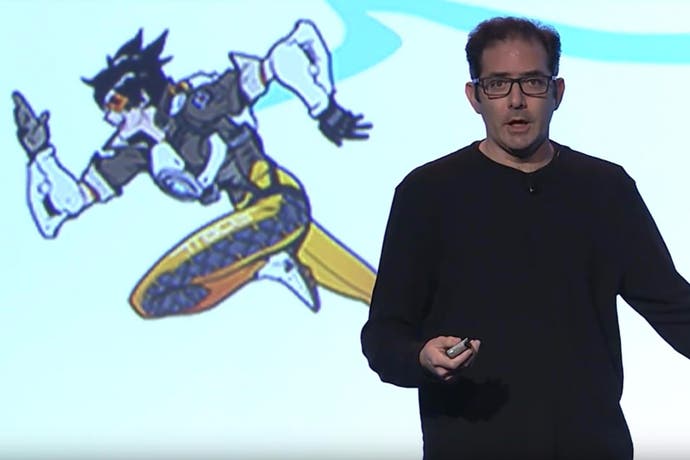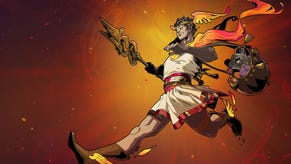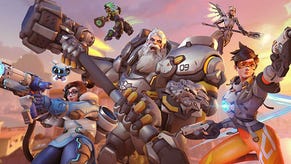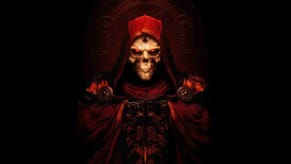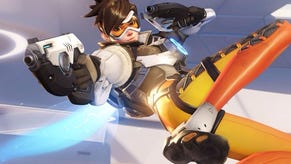Overwatch game director talks diversity, inclusivity and Tracer's sexuality
"It's important to show normal things as normal..."
Overwatch game director, Jeff Kaplan gave today's keynote presentation at D.I.C.E. Summit, and used the platform to talk about his team's approach to worldbuilding and character design.
Blizzard's team-based shooter has been widely praised for its diverse roster of heroes, including Brazilian DJ Lucio; Chinese climatologist Mei; and badass Egyptian sniper mum Ana.
"What's weird to us, is that Overwatch started to spark lots of discussions about diversity," said Kaplan. "It was a very hot topic during the development of Overwatch.
"I think it's really interesting that people think that diversity was the goal of the Overwatch team, when it was not. What we cared about was creating a game, and a game universe, and a world where everyone felt welcome. Really what the goal was, was inclusivity and open mindedness.
"We wanted there to be this feeling -- and I've talked to a lot of people about this and I think they've agreed with it - when I say you might be from somewhere that we haven't represented yet in Overwatch, but you could imagine there being an Overwatch hero or an Overwatch map from your area. And it seems totally plausible, like it seems like at any time I could be represented in the game. I think diversity is a beautiful end result that you get when you embrace inclusivity and open mindedness."
Unlike Blizzard's fictional settings, as seen in the Warcraft, StarCraft and Diablo games, Overwatch is set in a near-future version of planet Earth. This brought with it some challenges, said Kaplan, as players already have predisposed expectations as to what heroes from certain parts of the world should be like. Although the studio certainly leans into cultural stereotypes, it's wary of overstepping that line.
Overwatch's 22nd hero, Ana, was pointed out as an interesting example. She's perhaps the first older Egyptian mother to feature as a playable character in a mainstream, high budget game. "We went out of our way to challenge this notion," says Kaplan.
This thought process extended to the characters' sexuality, too.
"In December we wanted to put a thank you out to our community," said Kaplan. "So we made a comic book, written by Michael Chu, our lead writer, which was called Reflections.
"Reflections happened to reveal that Tracer had a girlfriend at home, not a boyfriend like some people expected. And this is all part of what we on the Overwatch team think of as: normal things are normal. It's important to show normal things as normal, so they become more normal. A lot of people had expected other characters to maybe be representative of the LGBT community and maybe it wasn't Tracer. To us, what was important about Tracer was that she was this badass, time-travelling hero, first and foremost.
"I was preparing for this talk and I took a moment to study some of the shooters over the last 10 years and I was looking into these game, and these are some of my favourite games of all time... I started to notice a trend as I put the box covers together. And the trend seems to be grizzled soldier dude and it made me think about just how different Overwatch was. It's very different to have an LGBT character in the cover and also one who's a female, so it's something that we're pretty proud of."
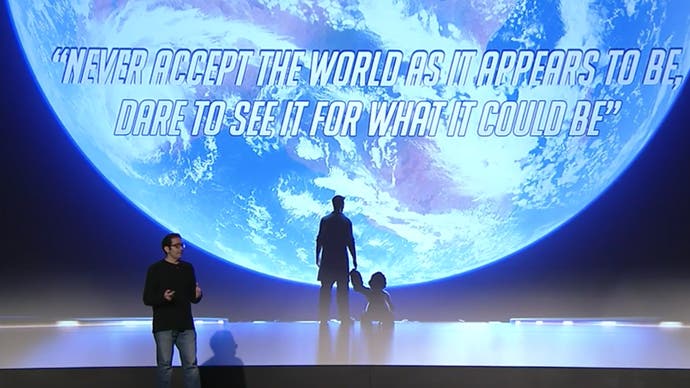
These design decisions have had an impact on the real-world, too. The Overwatch community, as we often report ourselves, is incredibly passionate about this group of heroes. The internet is absolutely full of incredible cosplay, fan fiction and artwork. More than that, though, Kaplan pointed out the wider political impact his game has had.
"At the end of January, we saw something very special happen," said Kaplan. "There was an international march for women's rights all over the world and the thing that really caught our eye was that in Seoul, Korea, during the march, someone was flying this flag that had the symbol for D'va, who is our character from Korea and in some ways challenges stereotypes and in other ways, embraces them.
"We saw this flag flying for D.Va and we looked into it more and there was this national foundation for D.Va that was a feminist foundation for women's rights. And what really started to fascinate me when I looked into this, as I read their charter, was this last sentence: 'We decided to act for feminism under her emblem, so that in 2060, someone like D.Va could actually exist.' "
"In no way do we aspire to be a political game," he concludes. "We have no political motivation whatsoever, but it's fascinating to see that the values of the Overwatch team are now being embraced and owned by the community in their own positive way."
